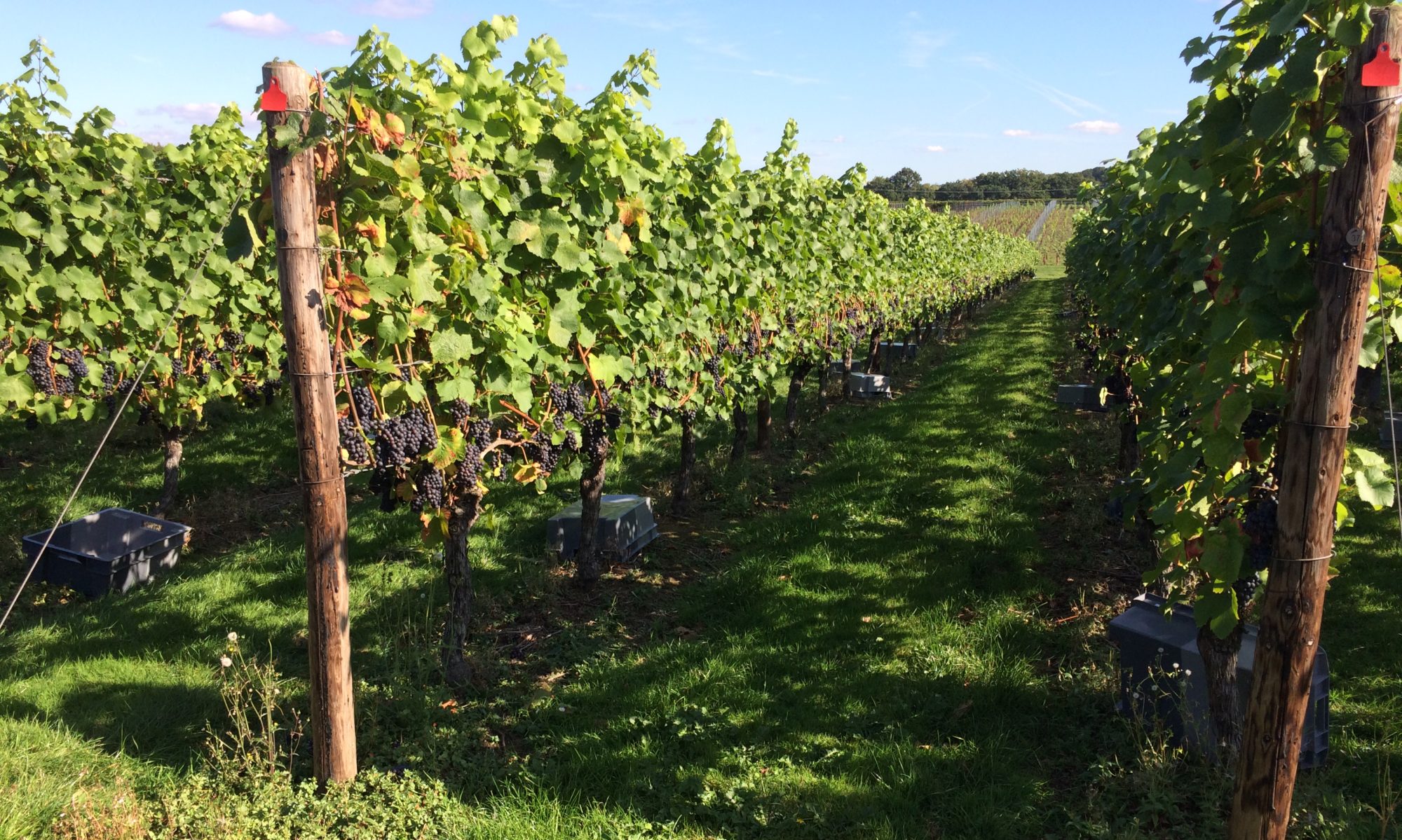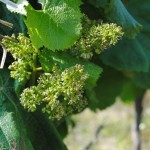Rond0 0n the 25/7/2010

by Owen Elias
 Wimbledon fortnight is the traditional start of flowering time in English vineyards, 2010 has had ideal weather for flowering particularly in the south east, hot, dry, and not too windy .The picture shows Rondo in flower on the 24th June 2010 . By the middle of July most varieties had finished The general concensus seems to be that flowering finished about a week later than in 2009 . For those vineyards not affected by the frosts (around the 11th may) the crop potential is good.
Wimbledon fortnight is the traditional start of flowering time in English vineyards, 2010 has had ideal weather for flowering particularly in the south east, hot, dry, and not too windy .The picture shows Rondo in flower on the 24th June 2010 . By the middle of July most varieties had finished The general concensus seems to be that flowering finished about a week later than in 2009 . For those vineyards not affected by the frosts (around the 11th may) the crop potential is good.
Champagne print some very interesting statistics.
The total planted area of Champagne is 34,045 ha .
Of that total only 10% (3,433 ha ) is owned by the Champagne Houses , the rest is owned by the vignerons.(mainly growers,but some vintners)
The total area planted in the UK is estimated at 1300 ha, (all varieties) more than half that total planted in the last 5 years. Over 300,000 vines were planted in the UK in 2009 ,mainly sparkling varieties . 300,000 vines have been planted in 2010 though interestingly over half were still wine varietals and planted outside the South East .
Six varieties of vines are premitted in Champagne , Pinot Noir, Pinot Meunier, Chardonnay make up over 99% of the vines.Pinot Blanc, Petit Mesiler,and Arbane make up the remaining 0.27%.
Pinot Noir 13,072 ha 38.4%
Pinot Meunier 11,008 ha 32.34%
Chardonnay 9,868ha 28.99%
In England the bulk of plantings for Sparkling wine have been Pinot Noir and Chardonnay, Pinot Meunier has generally been relegated to an after-thought. The Champenoise may well be responsible for this, some houses not advertising it as part of their blends. Its longevity and aging potential is sometimes questioned . Yields in England are lower than for Pinot Noir and Chardonnay but they do seem to be more consistant. The wine quality is very good.
The much heralded 2009 English Vintage lived up to expectations as the results of the UKVA wine of the year competition results were published. A record number of entries and an unprecedented number of medals awarded. In a competition usually dominated by sparkling wines, still wines had a chance to shine .
Bacchus showed exceptionally well, Chapel Down securing the Jack Ward Trophy with its Bacchus 2009, as well as 2 other golds for Bacchus Reserve 2009 and the Tenterden Estate Bacchus 2009 (made by Owen Elias and others), Camel Valley weighed in with Darnibole Bacchus 2009 (no idea where the grapes are from) , Ickworth always interesting, with their Garden Bacchus 2009 .
Pinot Noir ,still to show its full potential as a still, gained a Trophy and a Gold for PlumptonCollege.
The Gore-Browne Trophy went to Ridgeview for their 2001 magnum Grosvener Blanc de Blanc. Ridgeview were also the winemakers for the 2 gold medal winning Gusbourne Estate Sparklers- Classic blend 2006 and Pinot Noir 2007 .
In spite of my best efforts , Sam Lindo – Camel Valley was awarded Winemaker of the year .
The effects and extent of the May frosts in Kent and Sussex is beginning to emerge. Sheltered early sites have suffered the worst, more exposed sites with decent slopes the best. Even high trellis systems which can mitigate against ground frosts have been affected. Growers, who have not had frost problems on this scale since 1995, should be reviewing their frost protection stratergies. Spring frosts are predicted to become more likely according to the climate change theorists. Potential growers need to take this into account when selecting a site. Suseptibility to frost is a major factor in the viability of a vineyard .
Rondo and Chardonnay with their early bud burst tended to be the hardest hit. Pinot Noir has fared better and overall the potential in un-frosted vines looks high.